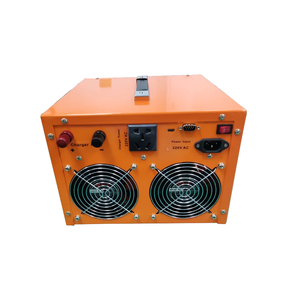Understanding Electric Bike Battery Balancers
Electric bike battery balancers are essential components in the realm of e-bike maintenance and longevity. These devices play a crucial role in ensuring that the cells within a battery pack are uniformly charged, thereby preventing overcharging and undercharging scenarios which can significantly impact battery life and performance.
Types and Applications
There are various types of electric bike battery balancers available, each designed to cater to different battery chemistries and configurations. They are commonly integrated into battery management systems (BMS) for electric bicycles, ensuring that each cell within a multi-cell battery pack remains in harmony with its counterparts. This balance is vital for the optimal function of electric bicycles, especially for those used in commercial and industrial settings where reliability is paramount.
Key Features and Materials
A typical battery equalizer for electric bikes is constructed using robust materials that can withstand the electrical demands and thermal challenges posed by e-bike batteries. These balancers come equipped with features such as voltage monitoring and balance indication, which are critical for maintaining the health of the battery pack. The use of advanced circuitry in these balancers ensures precise control and longevity of the battery cells.
Advantages of Battery Balancing
Utilizing a battery balancer in electric bike applications offers numerous advantages. It extends the overall lifespan of the battery pack, improves its performance, and enhances the safety of the e-bike by reducing the risk of battery failure. Moreover, a well-balanced battery ensures consistent power delivery and can contribute to the e-bike's range efficiency.
Selection Criteria
When selecting a battery management system that includes a balancer for an electric bike, it is important to consider the specific needs of the battery type and capacity. Factors such as the number of cells, the voltage of the battery pack, and the intended use of the e-bike should guide the selection process to ensure compatibility and effectiveness.
Integration and Compatibility
The integration of a lithium battery balancer into an e-bike's power system should be seamless, with compatibility across various battery technologies, such as lithium-ion, being a key consideration. It is crucial to ensure that the balancer matches the specifications of the battery to maintain efficiency and safety standards.












































 浙公网安备 33010002000092号
浙公网安备 33010002000092号 浙B2-20120091-4
浙B2-20120091-4